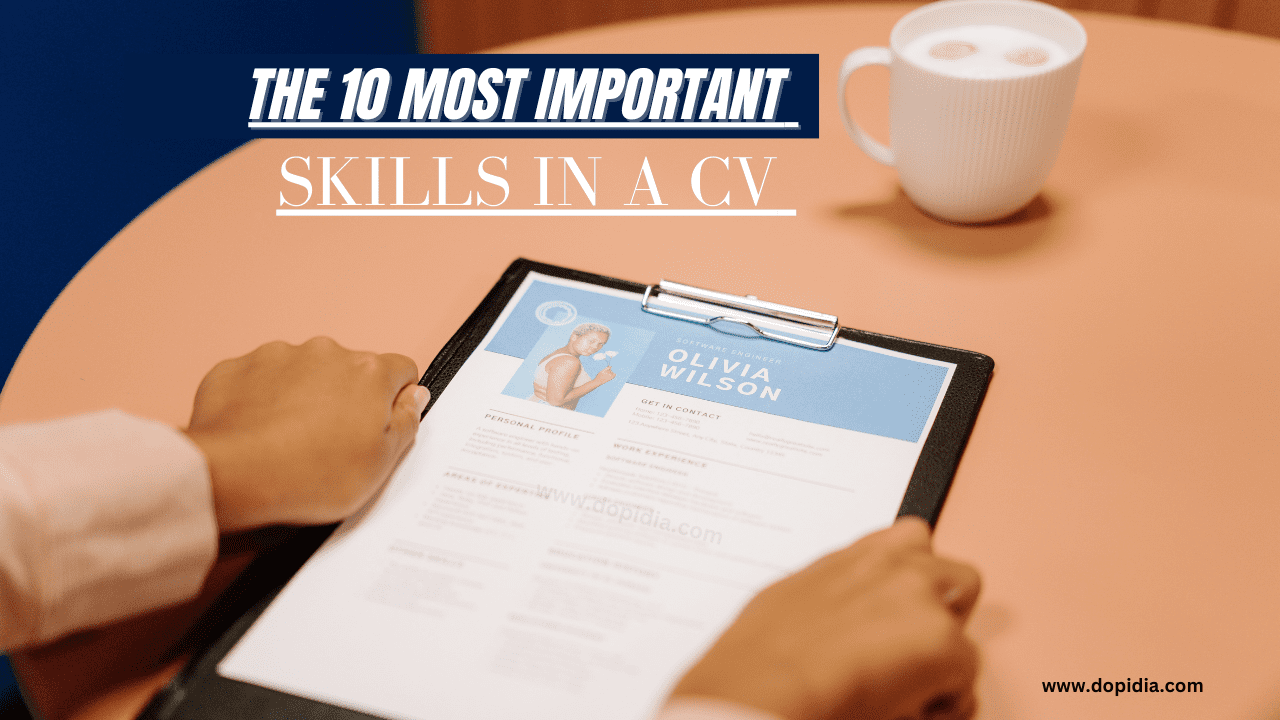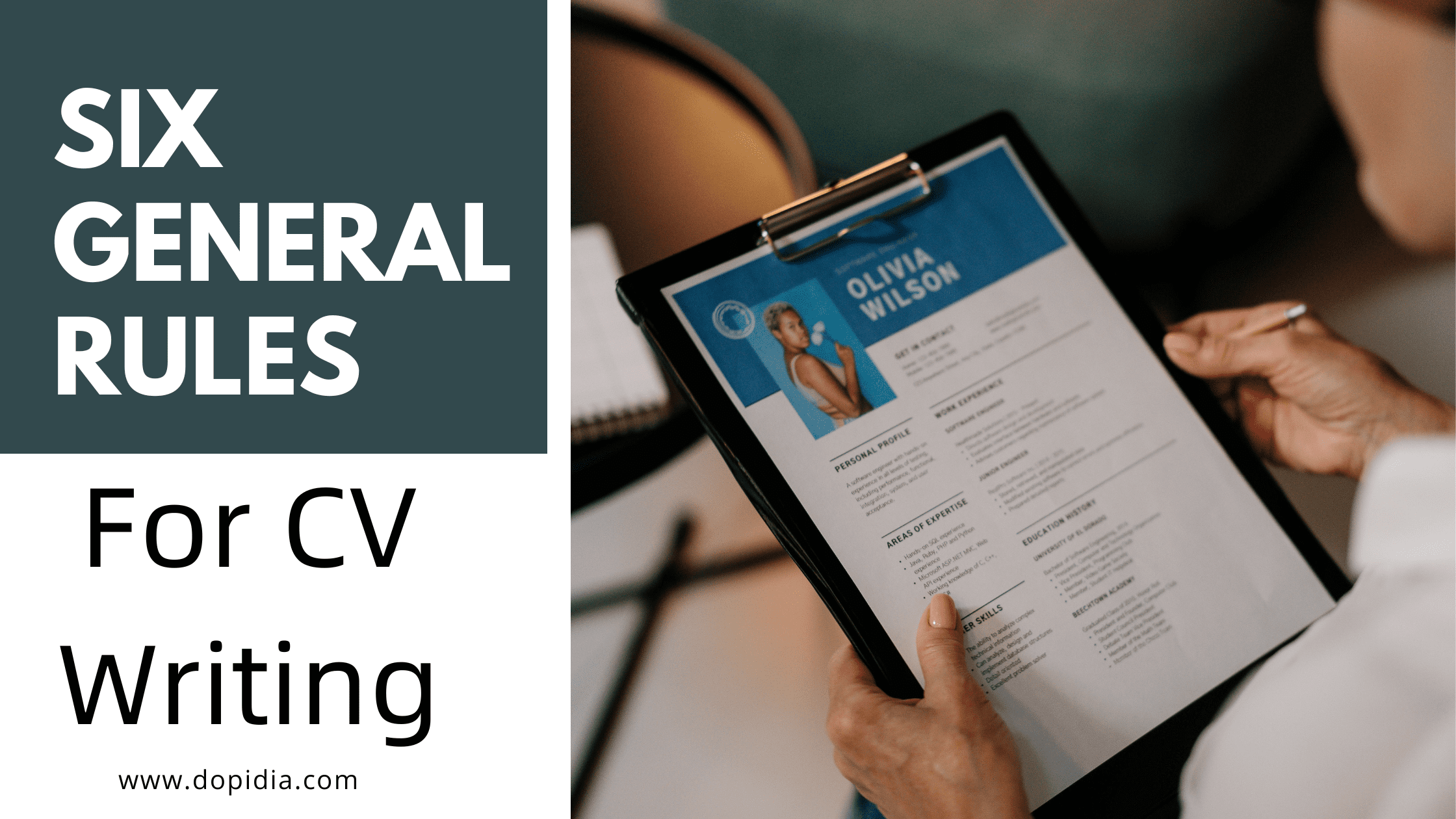The 10 Most Important Skills in a CV (With Examples)
The skills section of your CV demonstrates to employers that you possess the abilities required to succeed in the role. Employers often place extra emphasis on the skills section when deciding whether you should proceed to the next step in the recruitment process.
In this article, we explore 10 important skills that your CV should include, and provide tips on how to best structure the skills section in your CV.
10 Important Skills in a CV
Here are some crucial types of skills that a CV can include:
- Active listening
- Communication
- Computer skills
- Customer service
- Social competence
- Leadership
- Organizational skills
- Problem-solving
- Time management
- Transferable skills
Hard versus Soft Skills
Employers want to recruit employees who have the right combination of two types of skills: hard and soft skills.
Hard skills refer to job-specific or industry-specific skills. Generally, these are more technical competencies that you acquire through education, certification programs, training, or on-the-job experiences. Some examples of hard skills include knowledge of:
- Software
- Foreign language
- Qualifications to operate certain equipment or certain machines
Soft skills are abilities that can be useful in any job. They are often described as “people skills” or “social skills,” and encompass competencies in areas such as:
- Communication
- Customer service
- Problem solving
- Time management
- Leadership
Hard skills are typically teachable, while soft skills are often personality traits that are more challenging to develop, which also makes them particularly valuable to employers. In most cases, soft skills can complement a person’s hard skills. For example, if you are a detail-oriented software developer with expertise in a particular programming language, you are likely to be good at spotting errors and resolving issues in the code that you and your team create.
As a job seeker, it’s essential to highlight your best hard and soft skills to position yourself as a candidate with a broad range of competencies. It’s also useful to consider how both types of skills relate to each other and the job at hand, so you can discuss this during your next interview.
How to Identify Your Top Skills
If you’re unsure about which skills to highlight, you can start by reflecting on your past experiences. Where have you excelled? In what areas would your colleagues say you are particularly strong? Here are some tips on how to determine which skills are worth including in your CV:
Consider Awards and Achievements
Have you ever been recognized for reaching a specific goal or excelling in a particular area? If so, it’s likely your skills that enabled you to achieve that milestone. Think about the talents or qualities you possess that made reaching that accomplishment possible.
Ask former Colleagues or Classmates
Sometimes, others can see strengths in you that you may not be aware of yourself. Reach out to a former boss or colleagues with whom you’ve worked closely. If this is your first job, you can contact students with whom you’ve collaborated, teachers who know you well, or someone you consider a mentor.
Speak with Professionals in the Field
If you find it challenging to determine which skills an employer may be interested in, consider reaching out to someone already working in the industry or holding a position similar to the one you’re applying for. Find out which skills they consider most important and identify those that align with your own.
When compiling a list of skills for your CV, it’s important to include only those that you know are your strengths. If there’s an area where you still have room to learn, don’t feel pressured to include it just because it’s mentioned in the job advertisement. If an employer mentions a skill during the interview process that you haven’t included, you have the opportunity to discuss what you’re doing to improve or learn it.
Related Topic: How to attract top talent to your company
How to list skills in a CV
Review the job description and find out more about the company
Even though you may have many strong points, you should only include those that are relevant to the job. Since recruiters often have limited time when reviewing CVs, it’s best to make the skills section as specific and concise as possible. Once you’re in the interview phase, you have the opportunity to discuss other skills that you haven’t mentioned in your CV.
Start by reviewing the job description and note if there are any competency requirements or skills that align with your own. Besides the job requirements, also consider the company’s description and its culture.
In a job description for a receptionist, there may be requirements for knowledge of an electronic patient records system and a booking program. It may also state that the company values good teamwork and satisfied patients. In this case, the key competencies to include in your CV could be:
- Electronic patient records systems
- Patient booking program
- Leadership and teamwork
- Communication skills
- Customer service
Determine the Format for Your Skills Section
There are several different ways to include skills in a CV:
- Incorporate your skills into a functional CV. This is a good option for those who want to change careers or for individuals with little or no professional experience.
- Include your skills in a separate skills section. This is a suitable choice for individuals with broad experience who want to highlight specific skills or qualifications that make them stand out.
- Integrate your skills into the work experience section. Whichever option you choose, it’s important to include keywords from the job description when detailing your previous experiences.
Let’s take a closer look at the various alternatives before deciding which one works best for you.
May You Also Like: Is Life Insurance a Good Career Path
Include your skills in a functional CV
If you are changing careers or industries and do not have extensive work experience, it may be appropriate to place your skills at the top of your CV. This type of CV is called a functional CV.
When incorporating skills in a functional CV, create a separate skills section where you list essential competencies relevant to the position you are applying for, along with your achievements. Place your work experience below the skills section.
Here’s an example of how to include skills in a functional CV:
Skills
Process Streamlining
Created email templates for customer service used company-wide in customer interactions. Independently compiled a training handbook for customer service representatives, reducing onboarding time from eight to six weeks. Decreased average call handling time by 90 seconds through an intuitively designed online course.
Complaint Management
Handled an average of more than 50 calls per day from dissatisfied customers regarding delayed deliveries, incorrect orders, and missing shipments. Achieved a 97% average customer satisfaction rate, surpassing the team’s goal by 12%.
Service-Based Sales
Consistently exceeded sales targets by over 10% through innovative upselling techniques. Developed an improved follow-up system with dissatisfied customers, resulting in a 6% reduction in customer churn.
List your skills in a separate skills section
If you want to complement your work experience with skills required by or relevant to the employer, you can include a separate skills section where you highlight keywords from the job description. If you have extensive work experience, the work history section should be the first thing employers see. You can list additional skills in a separate section near the end of your CV or at the very bottom.
Here’s an example of a skills section for a payroll specialist:
Relevant Skills: Proficient in Quicken and QuickBooks, employee benefits administration, onboarding of new hires, regional payroll management, employee relations.
Integrate your skills into the work experience section
While many job seekers choose to list their skills in a separate section of the CV, it’s also important to weave them into the descriptions under each previous employment. This is an opportunity to provide more context and specific examples in your skills section.
For example, if you include skills like “project management” and “time management,” you can illustrate this by providing real-life examples. You could write something like: “Managed six projects across three separate teams during the first half of 2018, achieving successful outcomes, and all deliverables were completed within deadlines.
Related Topic: How skills development can advance your career
Examples of Competencies to Include in a CV
It is often easy to identify hard skills based on the tasks in the job description, but it may not always be clear which relevant soft skills to choose. You can identify valuable soft skills to include in your CV by examining the job responsibilities and determining which of your personal strengths are most relevant.
Below are several examples of popular soft and hard skills that employers often seek:
1. Active Listening Ability
Active listening refers to the ability to fully focus on the speaker, understand what they are saying, receive the information, and respond thoughtfully. listeners use verbal and non-verbal techniques to show that they are attentive to the speaker. By developing and using your active listening competency, you can demonstrate to your colleagues that you are engaged and interested in the project or task.
Examples of related listening Skills:
- Asking questions
- Note
- Organization
- Punctuality
- Verbal/icke-verbal communication
2. Communication Skills
Communication skills come into play when conveying and receiving various types of information. It may involve expressing ideas, emotions, or what is happening around you. Communication skills encompass the ability to listen, speak, observe, and show empathy. Having strong communication skills is crucial in every industry and at all career levels.
Examples of related communication Skills:
- Active listening
- Constructive criticism
- Communication skills
- Speak in public
- Verbal/icke-verbal communication
- Written communication
3. Computer Skills
Computer skills encompass the ability to learn and use various technical systems. Hardware skills allow you to physically handle a computer, and it can be as simple as knowing how to turn a specific machine on and off. Software skills help you efficiently use computer programs and applications. Some software skills may be considered necessary by employers, such as proficiency in using spreadsheets or knowledge of a specific coding language.
Examples of related computer competencies:
- Typing/word processing
- Knowledge of coding languages
- System administration
- Spreadsheet
- Email management
4. Customer Service Competencies
Customer service competencies are qualities and methods that help you meet customer needs and create a positive experience. In general, customer service is highly reliant on a person’s problem-solving and communication abilities. Customer service is often considered a “soft skill” and includes elements like active listening and the ability to read both verbal and non-verbal cues.
Related customer service competencies:
- Active listening
- Empathy
- Social skills
- Problem solving
- Reliability
5. Social Competence
Social competence refers to qualities that you rely on when interacting and communicating with others. They are used in many scenarios where collaboration is central. Developing your social competence is essential for working effectively with others, solving problems, and leading projects or teams.
Related social competencies:
- Communication
- Empathy
- Flexibility
- Leadership
- Patience
6. Leadership Competencies
You use your leadership competencies when you want to get other people to work toward a common goal. Whether you have a managerial position or lead a project, your leadership competencies are put to the test when a series of tasks need to be completed, often according to a specific schedule.
Related leadership competencies:
- Ability to teach and act as a mentor
- Flexibility
- Risk taking
- Group building
- Time management
7. Organizational Skills
Organizational skills refer to qualities that help you manage both tasks and people. A good manager is well-organized, empathetic, and can communicate clearly to their team or within a project. Managers should have both soft competencies and certain technical competencies that are relevant to their industry.
Competencies related to organizational skills:
- Decision making
- Project planning
- Delegation of tasks
- Communication in the group
- Leadership and teamwork
8. Problem-Solving Skills
Problem-solving Skills help you identify the source of a problem and find effective solutions quickly. This skill is highly valued in all roles, regardless of the industry. To solve problems in your role, you may need some industry- or job-specific technical competencies.
Related problem-solving Skills:
- Detail orientation
- Collaborative skills
- Communication
- Patience
- Research
9. Time Management
With time management competency, you can complete tasks and projects within deadlines without sacrificing work-life balance. With good organization, you can prioritize your tasks correctly during the workday. Understanding your own, your team’s, and the company’s goals deeply gives you a good starting point for planning your time.
Skills related to time management:
- Delegate tasks
- Focus
- Goal setting
- Organization
- Prioritization
10. Transferable Skills
Transferable competencies are skills that are useful for all employers, whether you change jobs or careers. They often refer to soft skills, such as flexibility, organizational skills, teamwork, or other qualities that employers seek in strong candidates. Transferable competencies can be used to present your past experiences when applying for a new job, especially in a different industry.
Related transferable skills:
- Ambition
- Creativity
- Empathy
- Leadership
- Team work
The competencies that are best to include in a CV vary depending on the job type, career level, education, and more. What is most important for a driver, for example, may differ from what is most critical for a marketing manager. Before applying for a job, take the time to review the most valuable competencies for the employer and tailor your CV based on which of your personal competencies align with their requirements.
The goal of listing competencies in your CV is to show the recruiter or hiring manager that you are the best candidate for the role and that you have specific value to add to the team. By paying attention to the type of candidate an employer is seeking and making connections to your own strengths, you can quickly stand out in the competition.




